Welcome to another marvelous PTPioneer review featuring the NASM Certified Nutrition Coach (NASM-CNC)!
I break down the NASM-CNC certification along with the following aspects and include both the good and the bad:
Once you’ve read my informative NASM-CNC article, you’ll know whether this is the right nutrition certification for you.
Let’s dive in!
Quick Breakdown: NASM-CNC Certification
- Most reputable certifying organization
- Densely-packed textbook and handouts
- Excellent digital portal
- High Cost
- No NCCA accreditation
- Only 1.9 CEUs, instead of the 2.0 required for recertification
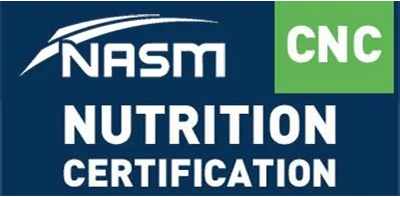
NASM-CNC General Information
- Exam cost: $899 ($449 on sale)
- Study material cost: $400-$1000+
- Prerequisites: None
- Exam passing score: 70% or higher
- Average completion time: 4-10 weeks
Introduction: What is the NASM-CNC?
In this article, I thoroughly review the National Academy of Sports Medicine nutrition certification program.
For those of you who prefer to digest information in video format, here is the YouTube video I made a few years ago.
I’m sure you all know how severe the obesity epidemic is in the United States.
It is predicted that by 2030, at least half of the United States population will be considered obese.
That’s bad.
Really, really bad.
And all of this is happening right in front of our eyes!
There are two types of evil, the first is doing it, but the second and far worse, at least in my opinion, is watching and letting it happen.
Good fitness professionals are those who help clients achieve their desired health and fitness results.
Becoming certified as a personal trainer helps compliment nutrition coaching very well.
For a comprehensive look at the best certifications, check out my review of the best personal trainer certifications.
Optimal results cannot be achieved by exercise alone!
Furthermore, what personal training clients do outside of training matters much more, but it is entirely up to them.
They can go home and eat healthily, or they can go and eat junk food and drink empty calories, like soda or alcohol.
Proper nutrition plays a more significant role than exercise does regarding the results that your clients will see.
Good coaches help clients develop healthy eating habits outside of the gym.
This way, they can reach their goals and even have better workouts.
Teaching clients lifestyle changes to keep throughout their life, and potentially pass on, is definitely special!
Formerly known as the NASM Fitness Nutrition Specialist Certification (NASM-FNS), the newly-developed, and more sophisticated NASM-CNC program provides everything to help maximize your client’s success and path towards optimal health.
As a NASM nutrition coach, you can answer the questions your clients have and address the real-world nutritional problems they face.
You’ll provide clients with top-notch nutrition education and implement coaching strategies that address issues such as obesity, body composition, and lifestyle approaches to disease management.
Also, the NASM nutrition certification can be used as an additional service, which can earn you more money.
While good trainers help clients in the gym, great trainers can influence clients both inside and out!
(Pun intended!)
While there are many other nutrition certifications for personal trainers, the NASM-CNC wins, and here’s why.
Exclusive PTP Nutrition Offers |
||
|---|---|---|
Gold Standard Cert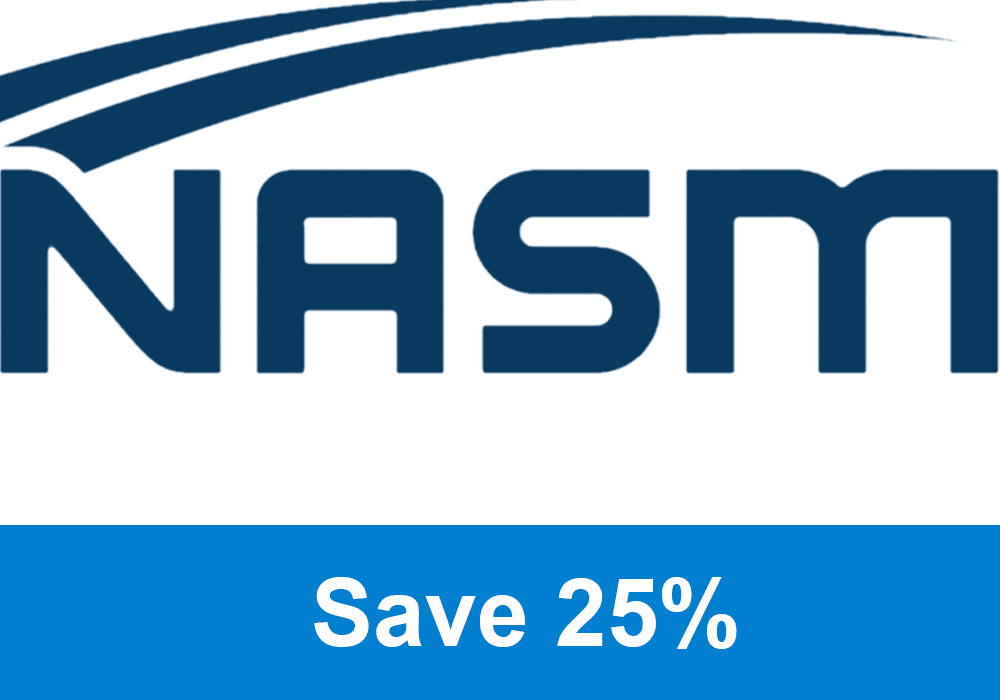 | Most Popular Cert | Best Study Materials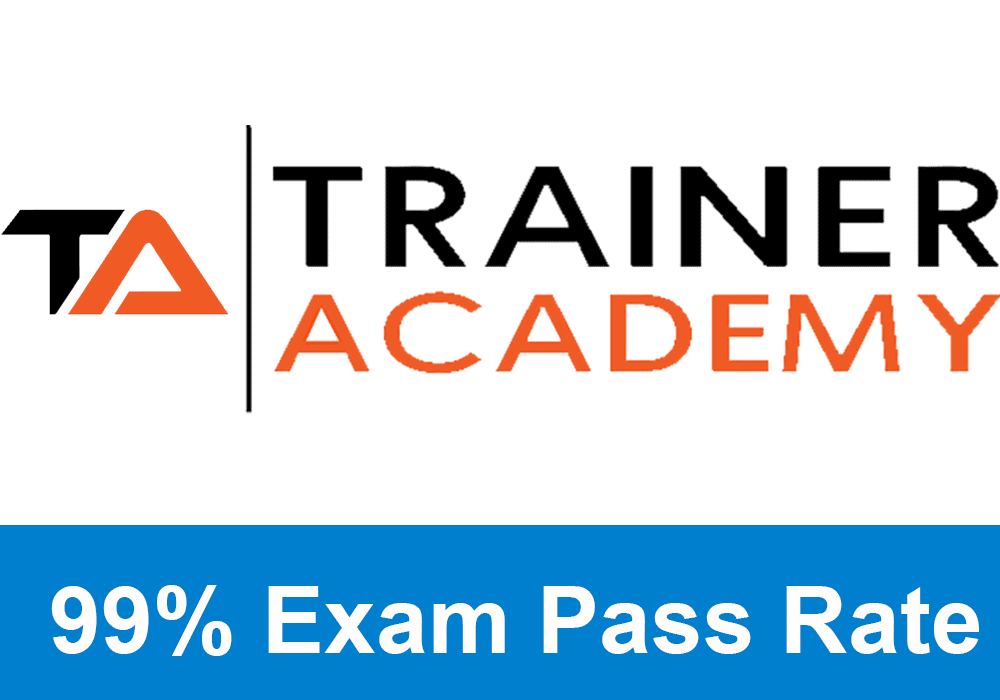 |
A Good Option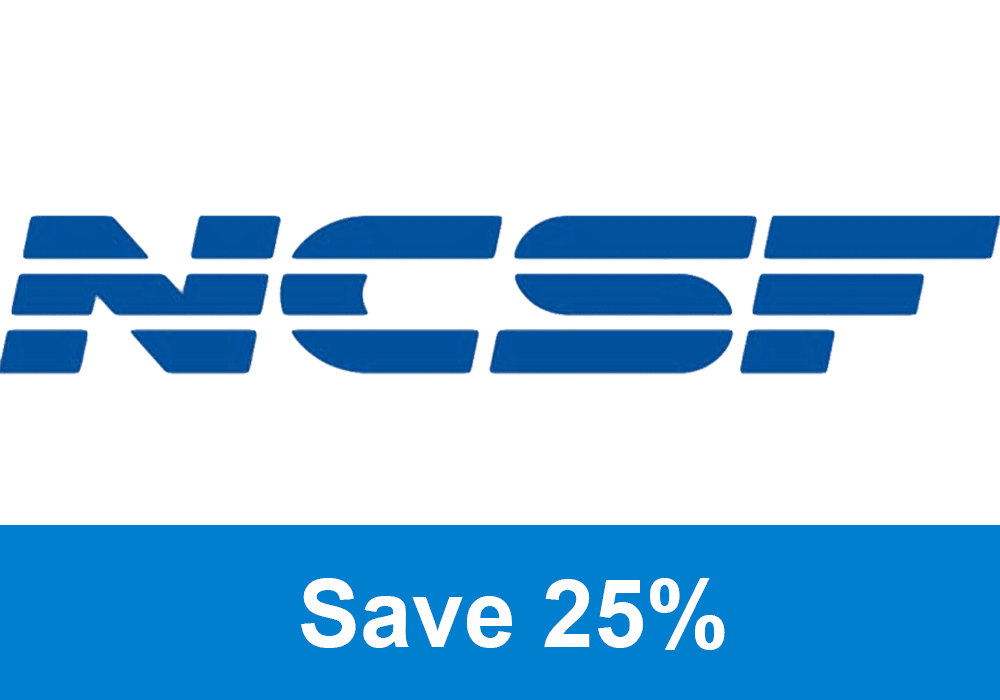 | A Great Option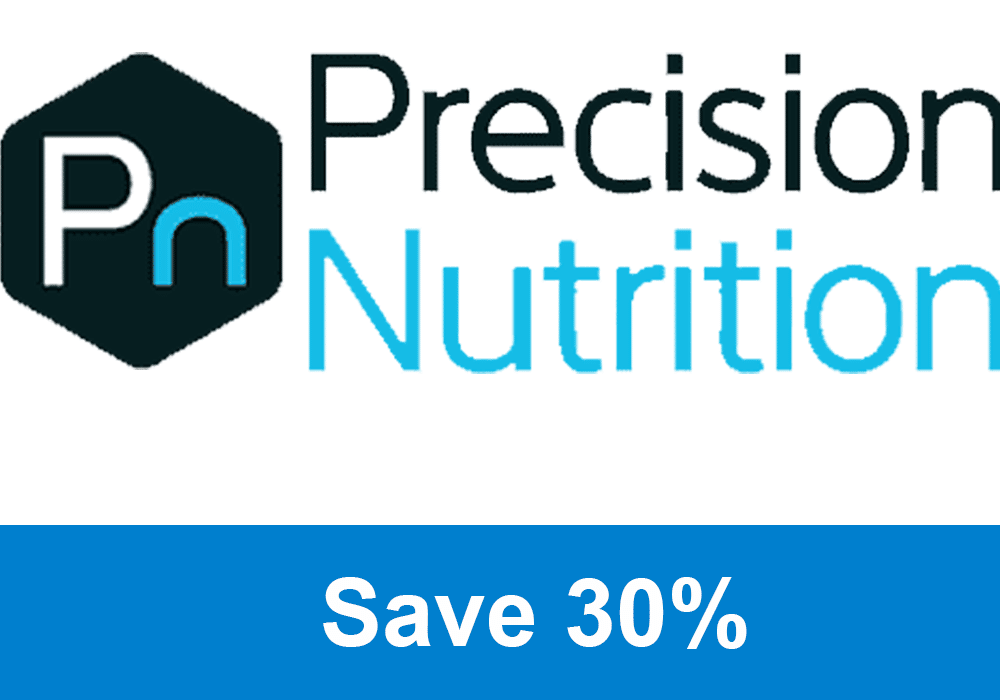 | Best Cert for you? 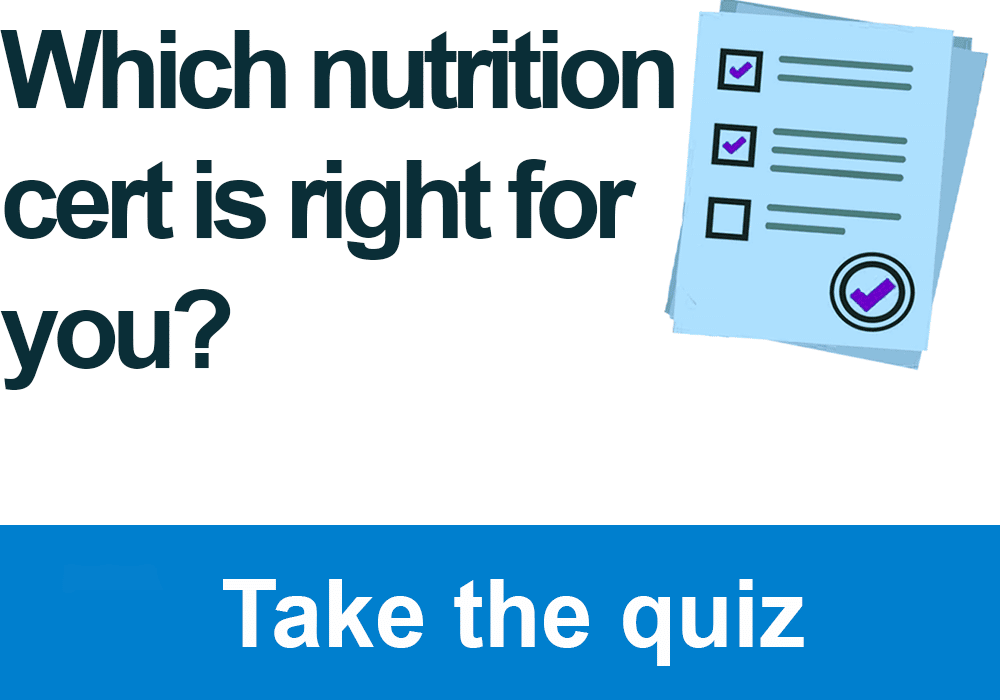 |
NASM-CNC Content Coverage: the Good and the Bad
The NASM-CNC’s primary study material is the digital textbook.
This NASM nutrition book has thousands of pages, which is a lot compared to most nutrition and fitness textbooks.
But it sure contains a hefty amount of note-worthy course content, as well as helpful and visually appealing infographics, charts, pictures, tables, and diagrams.
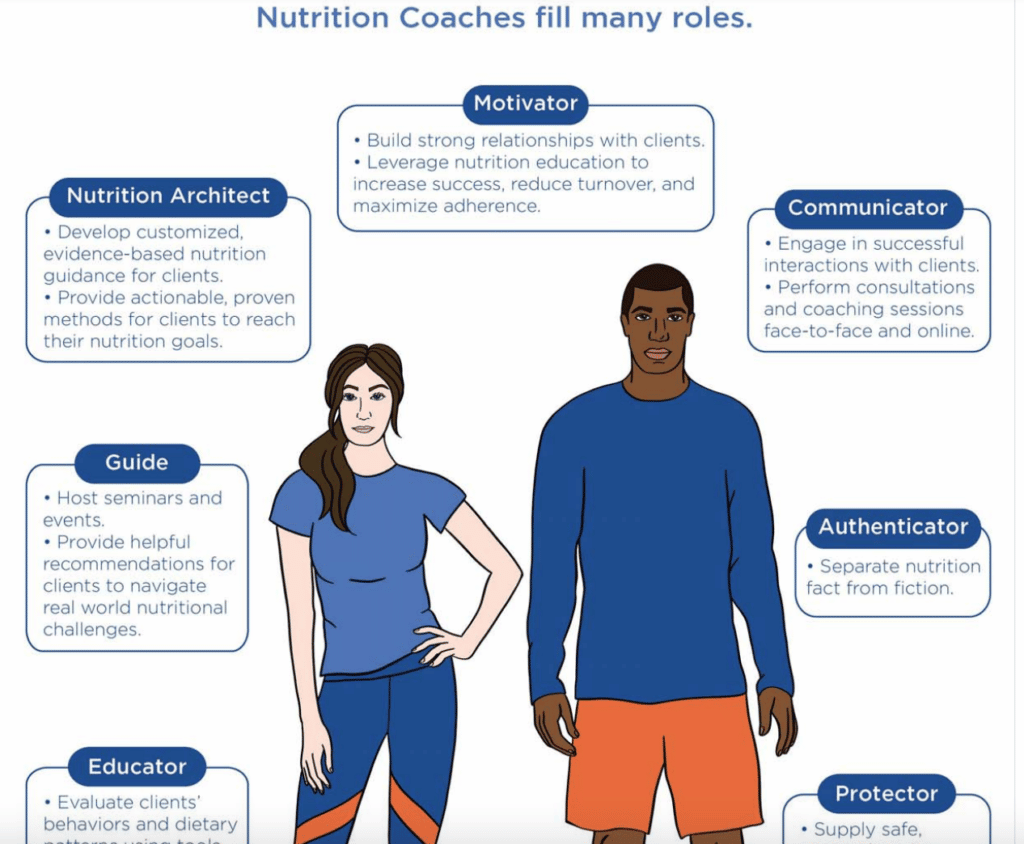
The knowledge checks at the end of each chapter match the content covered in its respective chapter to a tee.
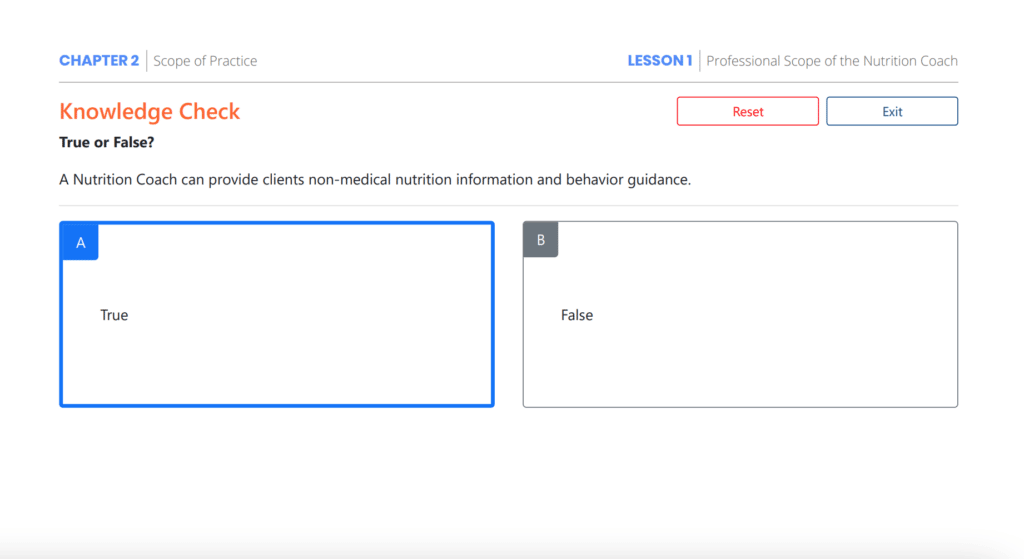
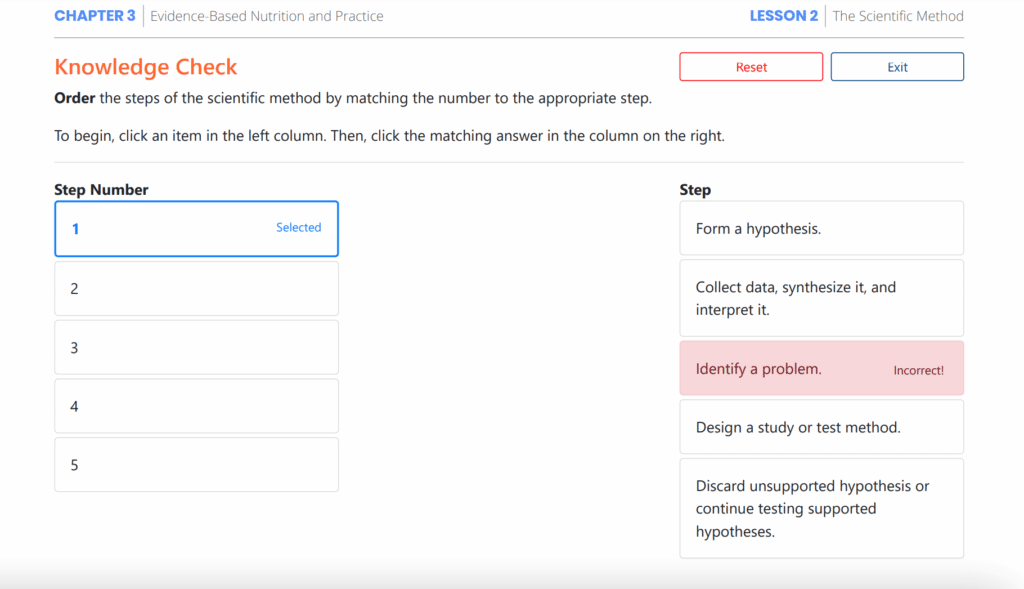
These activities, which are mostly true or false, multiple-choice, and matching, definitely help with retention!
Also, it scores you at the end, which encourages you to review and try to understand what you got wrong.
Overall, chapter 3 is very lengthy with its emphasis on scientific methods and research.
While research may help navigate around food and nutrition discussions, the main downside of this section is its insistence that this is the only nutrition data that is “correct.”
This may discourage other contradictory ideas, which may be correct, from opposing these already-existing hypotheses.
Real science isn’t afraid to contradict or question.
So I am very skeptical of this section and therefore find it very important to always question and challenge already-existing ideas in order to find what works best for you.
Moving on, I greatly appreciated this little “Food for Thought” blurb about cherry-picking.

Cherry-picking is something to always watch out for, especially when it comes to anything claiming to be “scientific,” “empirical,” or “evidence-based.”
So as a NASM-CNC, you can help clients seek out what works best for them.
From my perspective, including the section on food preferences and cultural influences on one’s diet is something they got right.
For example, these preferences or cultural influences may be helpful or a hindrance to your client’s health and fitness.
As a coach, awareness of such information makes it easier to formulate dietary plans accordingly.
I really liked the inclusion of NEAT, or non-exercise activity thermogenesis.
These are tasks or activities you can do to expend more energy without taxing yourself.
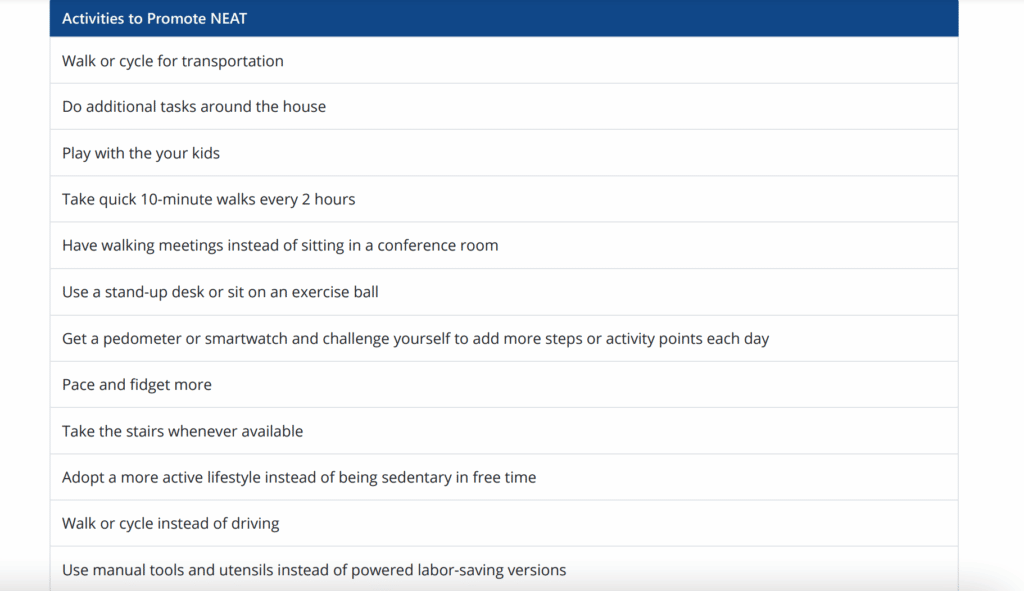
Metabolic pathways are emphasized at an appropriate length and cover each energy system in-depth.
Each macronutrient, protein, fats, and carbohydrates, is highlighted in a detailed fashion, as so:
- Its definition
- The chemical molecule
- Foods in that category
- How it’s absorbed and digested
- The role it plays in the body
The corresponding pictures and infographics make it easy to understand.
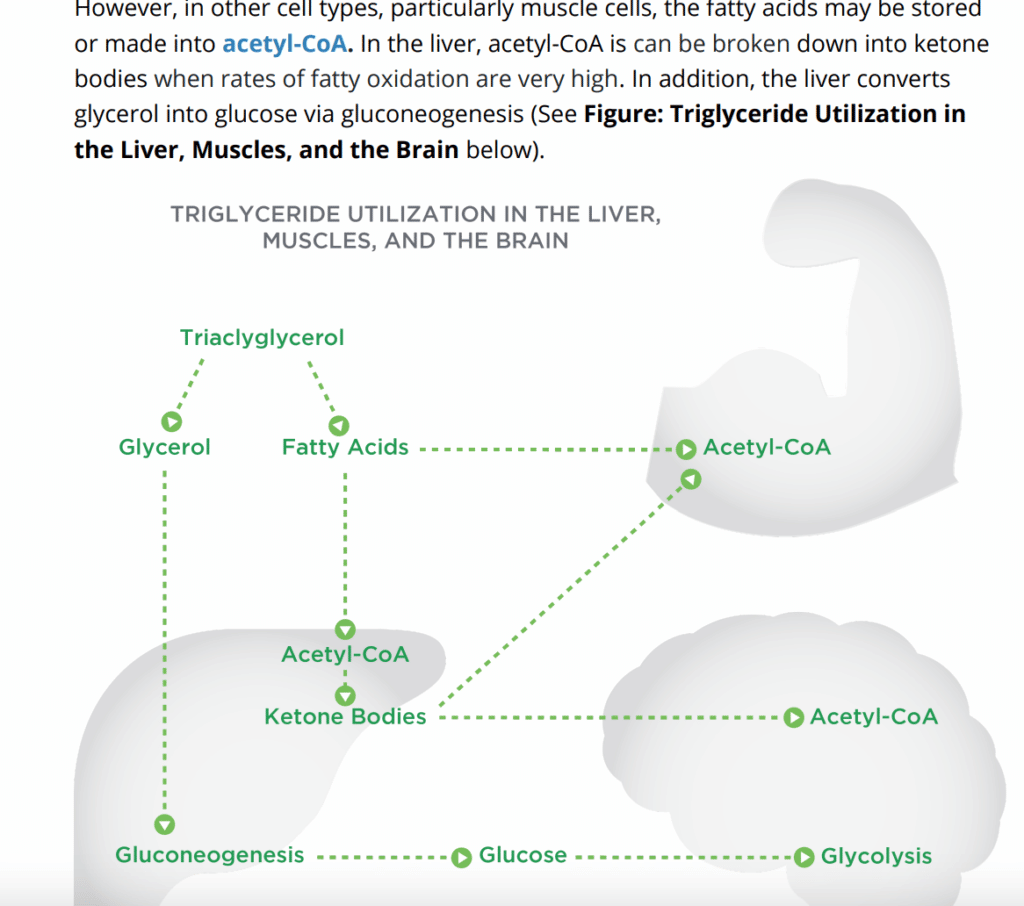
Chapter 9 on alcohol blew me away with its coverage on both the mental and physical effects of alcohol in the body and how it relates to fitness and wellness.
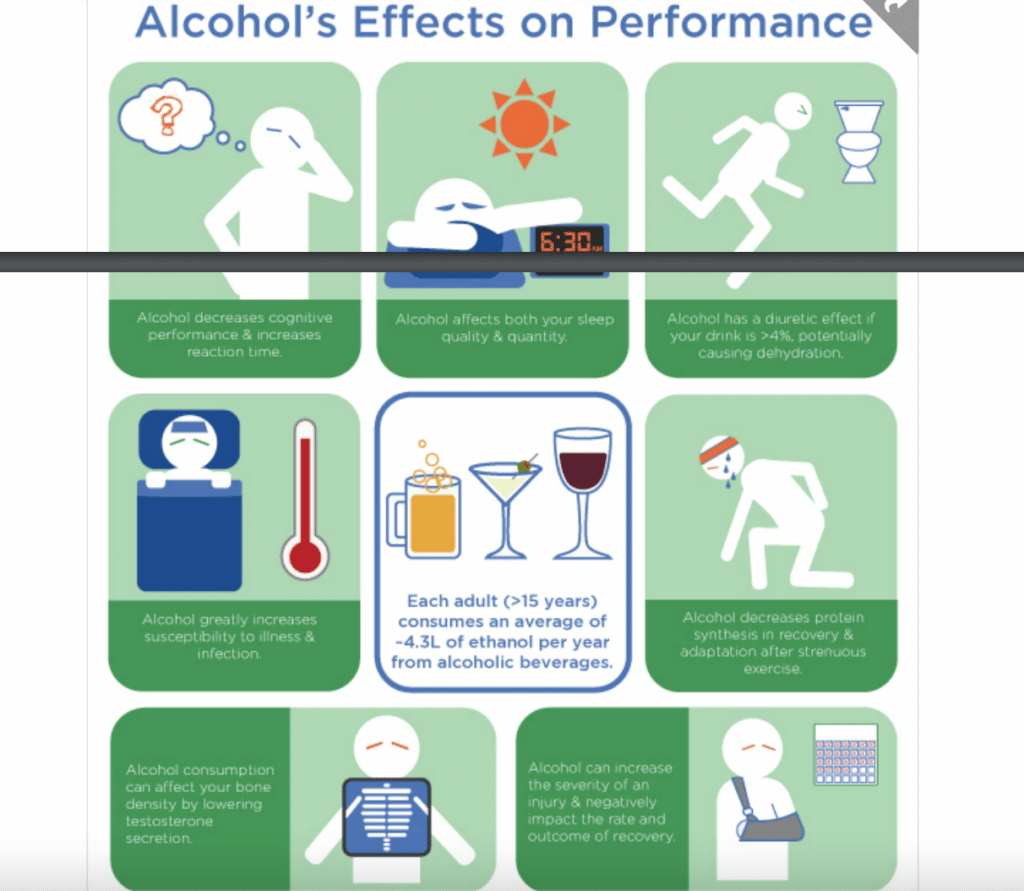
Once coaches educate clients on alcohol and its effects, clients may change their view on alcohol and make healthier choices, by limiting or totally nixing it.
The micronutrient chapter does an excellent job covering the minerals, water-soluble and fat-soluble vitamins, along with charts of foods containing each respective vitamin.
Depending on what clients eat, coaches can help clients incorporate a healthy balance of each mineral and vitamin in their diet.
Hydration is a very informative chapter and hits the following key points in a detailed fashion:
- Shifts of water in the body
- How water is lost
- Methods to avoid hypo or hyper hydration
- Strengths and weaknesses of common hydration status markers
- Hydration myths and hot topics
- Proper hydration strategies for during and between training bouts
Water is important, but understanding it, even more so!
Though the nutrient timing section isn’t too long, it provides sufficient content to understand the rationale of eating certain foods at certain times.
However, like with most nutrition topics, this is controversial and should remain something that clients know of, but still make their own choices based on how, when, and what they eat.
Also, what works for one may not work for all.
Everybody is different.
And every body is different, too.
Although supplementation is explored briefly in the micronutrient chapter, supplementation has its own chapter.
This is common for most nutrition and fitness textbooks.
Supplementation can help or hinder athletic performance and overall health, so I’d suggest that coaches dive into supplements and understand how they affect the body.
The chapter on behavior change psychology surrounding eating and food is definitely important not only for the coach but for clients.
It is very in-depth and reveals the following:
Exclusive PTP Nutrition Offers |
||
|---|---|---|
Gold Standard Cert | Most Popular Cert | Best Study Materials |
A Good Option | A Great Option | Best Cert for you?  |
- The stages of change model
- Barriers to diet and exercise
- Common eating disorders.
- How to develop comprehensive client profiles (i.e. goals and motives)
- How to identify common client types used to develop customized programs
- How to describe aspects of psychology in relation to fitness and wellness
Your body is capable of ANYTHING.
But, it’s your mind that you must first convince!
The chapter on coaching communication concisely covers effective coaching methods, strategies, and ways to be your best as a coach.
I was specifically impressed by this unique “Word Choice” section in this chapter.
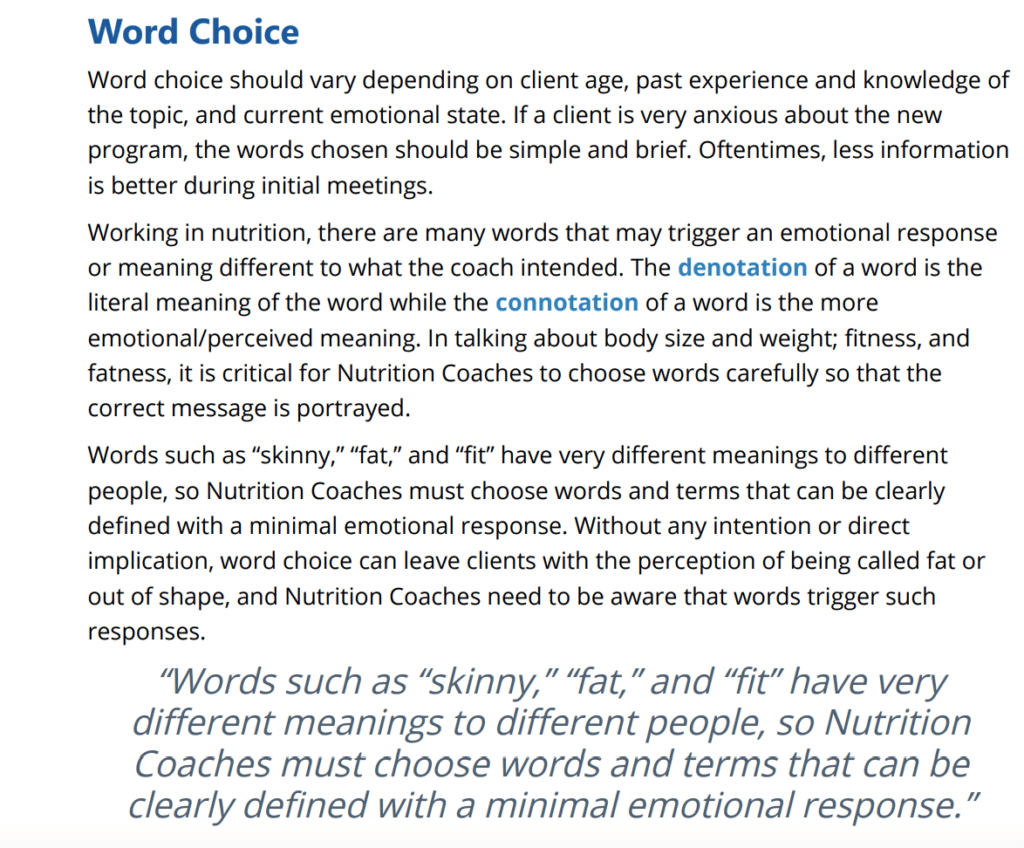
As coaches, communication is key, but knowing what to avoid saying and why is even more so!
Without emotional intelligence, proper communication skills, and empathy, you may potentially trigger a client, and this is definitely the wrong profession to do that in!
The motivational interviewing chapter is comprehensible and pretty similar to other nutrition and fitness textbooks.
The focus on empathy and being a good listener is one of my favorite things.
Anyone in a helping profession needs to know and apply active listening skills as well as nonjudgment.
You are here to help and guide, not to criticize and belittle.
The importance of proper goal-setting is very straightforwardly highlighted, and you can find templates and worksheets for clients to use.
I find the client assessment chapter very similar throughout all nutrition and fitness textbooks for the most part.
The next chapter on food labels contains helpful charts with common labels seen in stores, and how clients can use this knowledge to determine their food choices.
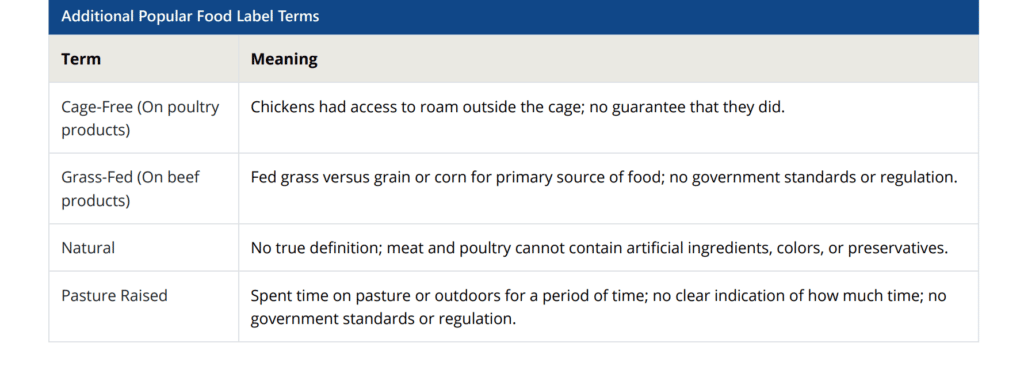
There is also helpful information on what clients with a specific diet or lifestyle can do if dining out, at a party, at grocery stores, traveling, on the go, and meal prepping.
You’ll navigate popular diets, learn about nutrition hot topics and controversies, and ways to help clients maintain weight control.
Finally, since you will now be equipped with the best strategies to formulate an effective program for your clients to thrive, you are ready to “put it all together” and go!
The NASM-CNC textbook provides you with the corresponding client handouts and worksheets.
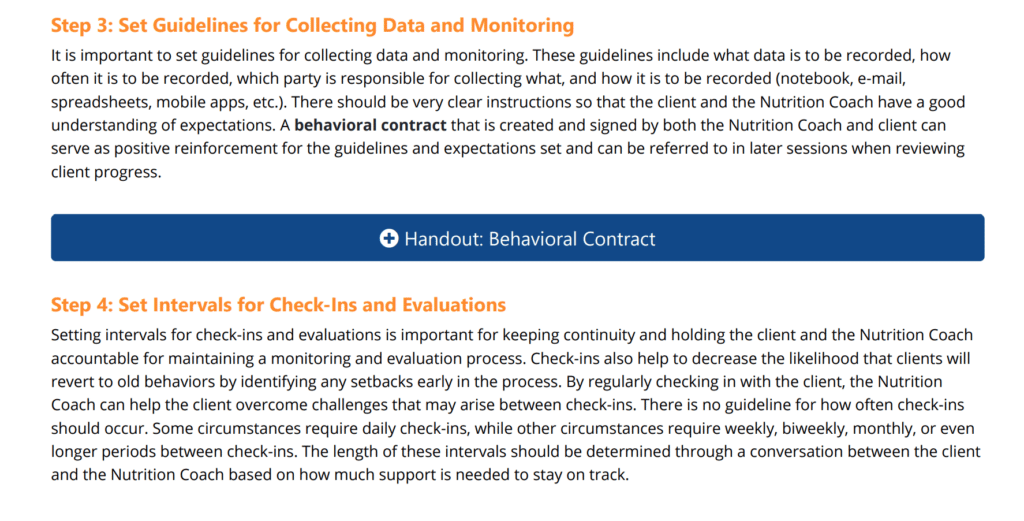
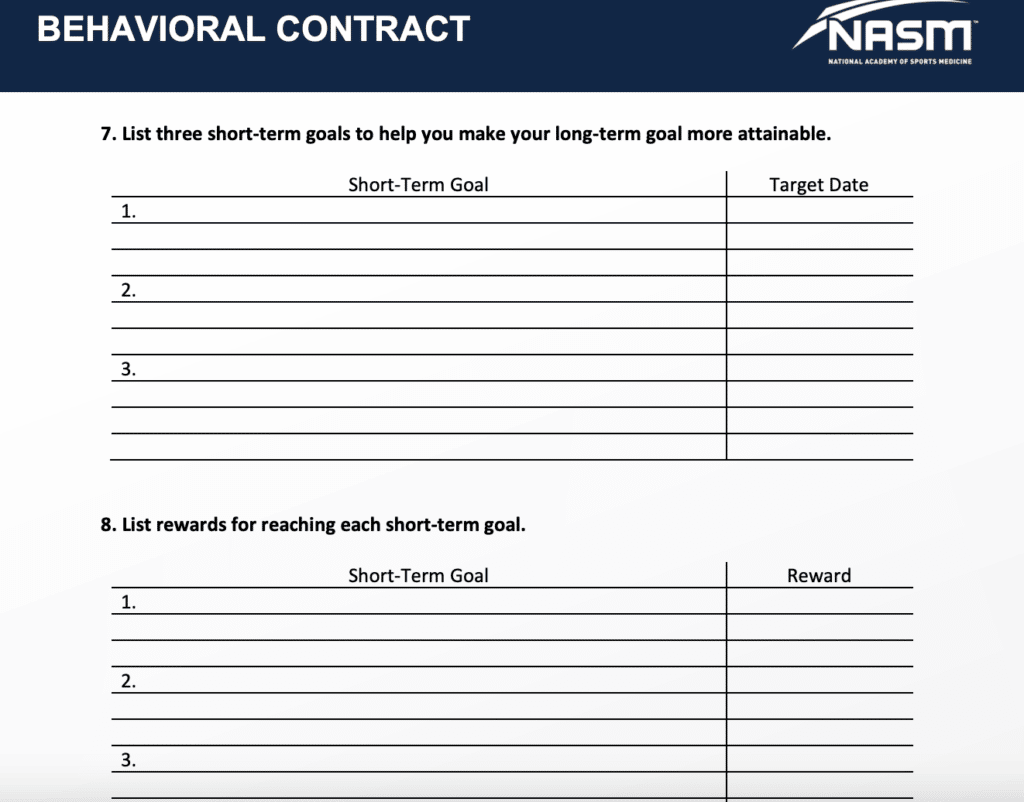
Lastly, there are case studies you can use as practice for your nutrition coaching career.
Overall, I’ve found this textbook to be very hands-on and engaging.
But NASM, as a high-quality fitness and nutrition certification provider, always does a great job and never fails to impress me!
NASM-CNC Requirements
Unlike some other nutrition certifications, such as the ISSA Nutritionist, there are no prerequisites for enrollment into the NASM-CNC program.
Like the NASM-CWC (Certified Wellness Coach), NASM-CES (Corrective Exercise Specialist), and NASM-PES (Performance Enhancement Specialist), the NASM-CNC falls under NASM specialty certifications.
So this certification, in and of itself, is not accredited by the National Commission for Certifying Agencies (NCCA), but most other nutrition programs, as well as CPTs, are.
NCCA accredited programs are a gold standard in the fitness industry.
So one drawback with the NASM-CNC is that it is not an NCCA accredited nutrition certification program.
This suggests that this nutrition program may be best for already certified personal trainers, group fitness instructors, or other professionals working in a related field.
NASM-CNC Study Materials: Quality and Price
Whereas the NASM-CPT offers multiple study packages, the NASM-CNC offers just one, which costs $449.
This is pretty average for a high-quality certification.
In this comprehensive NASM online course, you get the following:
- 1.9 NASM continuing education credits (CEUs)
- 24 in-depth chapters
- Over 40 high-quality lecture videos
- Over 200 downloadable handouts and infographics
- High-quality, user-friendly digital portal
Note that these 24 chapters go along with the textbook, but are divided into three sections.
Section one, Nutritional Science, covers the role of a nutrition coach, and ways the certification can benefit a career in fitness or wellness very well.
It heavily emphasizes the scope of practice, professional expectations, and differentiates among different related nutrition professions.
Like other nutrition coach courses, it heavily emphasizes “evidence-based” research in nutrition, as well as the basic principles and methodologies.
You’ll cover, in great depth, the effects of nutritional intake on bodily and metabolic health, and the roles of dietary habits in overall health.
Next, you’ll learn how macronutrients can be used as fuel for different activities and bodily functions.
Here, the “energy in versus energy out” equation is mentioned, but this theory is actually quite controversial, such as most nutritional theories and concepts.
The First Law of Thermodynamics, energy balance, and energy systems are all covered in sufficient depth to be applied.
Metabolism, macronutrients, micronutrients, hydration, alcohol, and nutrient timing are all greatly touched upon, too.
Moving on, the second section, Behavior Change Strategies, focuses heavily on behavioral psychology and how it affects fitness and wellness.
This is a great tool for helping clients overcome any psychological barriers to diet and exercise.
However, no matter how much you learn about things in a book, real-life has so much more complexity!
You’ll also learn proper coaching and communication, which is similar to that of a trainer’s, as well as motivational interviewing.
One thing NASM does exceptionally well, in all courses aside from its nutrition course, is prioritize helping clients set and track realistic goals.
Having realistic goals ensures very likely life-long adherence and provides structure and purpose.
And the final section, Nutrition Coaching, exceeds expectations covering ways to be an effective nutrition coach.
You’ll discover a step-by-step approach to assessing clients’ dietary intake and monitoring body composition.
Hot nutrition topics, such as artificial sweeteners, GMOs, organic, grass-fed, gluten-free, and more are covered.
This is all great content you can use to help clients navigate real-world situations surrounding food and healthy eating, such as reading and understanding nutrition labels.
NASM-CNC’s create individualized nutrition coaching strategies in accordance with clients’ food preferences, cultural background, and metabolic demands.
You will have one full calendar year from the date of enrollment to complete your final exam, which is very similar to other nutrition and fitness certifications.
Most people take as little as 4 weeks to study for and complete the exam.
Upon completion, you would immediately receive certification.
Also, this course is all online, meaning you can access it on all devices, which is very convenient for most people and definitely a perk in my eyes!
NASM-CNC Exam Difficulty: How hard is the NASM-CNC exam?
Unlike CPT exams, which are taken in person, the NASM-CNC exam is administered online only within your student portal.
You have 90 minutes to complete 100 multiple-choice questions.
The passing score is 70% or higher, but if you fail your exam, don’t fret!
You’ll have 3 attempts to obtain a passing score on your NASM online exam.
NASM-CNC Continuing Education
Just like the NASM-CPT, and most other CPTs and nutrition certifications, renewal of the NASM-CNC is required every two years.
This is done through the completion of the CNC Renewal Exam.
The CNC Renewal Exam offers three exam attempts and will have an enrollment duration of 365 days.
This renewal exam will recertify the NASM-CNC credential for another two years from the new completion date.
And lastly, don’t forget about the small renewal fee of $49.
Review Methodology
I based my expert review of the NASM-CNC certification based on the following criteria:
- The opinions of experienced nutrition coaches
- A critical review of quality and pricing
- Typically reported information from nutrition coaches who passed the exam
- Other comparable entry-level nutrition coach certifications
NASM-CNC Frequently Asked Questions (FAQs)
Conclusion
If you have not done so yet, take the quiz to get a better overall idea of which nutrition coach certification is the best match for you.
Feel free to explore the NASM-CNC and compare additional nutrition coach certifications against one another.
I find the NASM-CNC to be one of the best nutrition certifications on the market.
NASM always does a great job of offering in-depth curriculum and study materials to help you absorb the information.
If you are already advising your clients about diet and nutrition, I’m sure this certification will teach you a lot of new things.
Well, here’s to thriving and helping others do the same!

 Have a question?
Have a question? 
hi! what happens if my NASM nutrition course expires before taking the test?
You will have to contact the National Academy of sports medicine for an extension. If you go over the time you will have to pay some sort of fee.
Hi Ron,
Which Nutrition Certifications in the industry are accredited by the NCCA? I want the best Nutrition program I can get moving forward. Thx, Dan
Hello Dan,
I suggest that you check out my article that talks about the biggest NCCA accredited personal training certifications. Guess I hope this helps. https://www.ptpioneer.com/ncca-accredited-certifications/
Thanks for the review. I am deciding between the Precision Nutrition Level 1 and the NASM FNS. Which one would you recommend?
Hey Ron,
I usually recommend the NASM nutrition certification due to the fact that they operate year-round. I am actually doing a current review on the precision nutrition system to learn more about it. I do know that NASM just released their CNC (certified nutrition coach) certification very recently and it is already getting fantastic feedback from people the health and fitness community. Currently, this is what I would recommend you go for. I hope this helps!
what is the difference between being a health coach and a fitness nutrition/sports nutrition specialist? ive been tied between the two and want to make some distinctions
Hello Clarissa,
A health coach touches upon a lot of different areas lately such as fitness, nutrition as well as lifestyle changes such as behavioral change. A nutrition specialist just goes into the nutrition aspect but in much more depth. I hope this helps answer your question.
How long did it take you to study and complete/pass the exam?
Hello Connie,
This all depends on how much knowledge you currently have on nutrition. Have you taken any courses on nutrition in the past? On average I would say that it will take approximately three months to go through the FNS.
Hows it going brother. Appreciate your time . can you please tell me how many Chapter’s/ modules, pages is ebook/book. Also would you prefer this over ACE Nutrition Cert?
Hello Alfredo,
this is actually one of the National Academy of sports medicine’s older nutrition certifications. I suggest checking out my article on the newer certified nutrition coach certification as opposed to the FNS.
I was wondering after you attempt the test and say you failed, is all the studying guides still there to restudy again? Or does it go away
Hello Brandie,
Honestly, I am not exactly sure. This is something that you should definitely take up with the National Academy of sports medicine. I would assume that it would not go away and I don’t know why it would. But I cannot guarantee that 100%.
Hello I am currently doing the Nasm Fitness Nutrtion Specilait course. The course material is online and when you log into Nasm website you click either course contents or exam. I was told I had to go in to complete the exam, but would I be able to do it from home? I am worried that by clicking exam while I am home I will then loose one of my 3 try’s for the exam? It would be a lot easier if I could do from home as I am unfortunately traveling a lot at the moment.
Hope you can help.
Hey Hannah!
Ohhh well I am not positive about that, to be honest. I would call NASM to double check with them. Maybe they changed the way they do things with some certs. I know that you can take some online now no matter where you are in the world. to be safe I would call them though
Hey! So i was wondering, if I wanted to JUST get the FNS and not the CPT… is that okay? I’m much more interested in teaching/helping other people with nutrition rather than exercise. Is there any other federations that you would suggest for just wanting a nutrition certification? Or would NASM be okay for me just to get the FNS by itself.
Yes absolutely you can just get the FNS certification itself. If you nutrition is your main goal then you definitely do not need to give a general cpt certification.
Speaking about nutrition certifications, have you heard about Precision Nutrition and the own “exercise and sports nutrition ” certification?
Great job on your site, btw! Really helpful for everyone who enjoys thus career path!
Hey Oscar,
I’ve heard about them but I do not know too much about them to be honest. Thanks for the positive comments